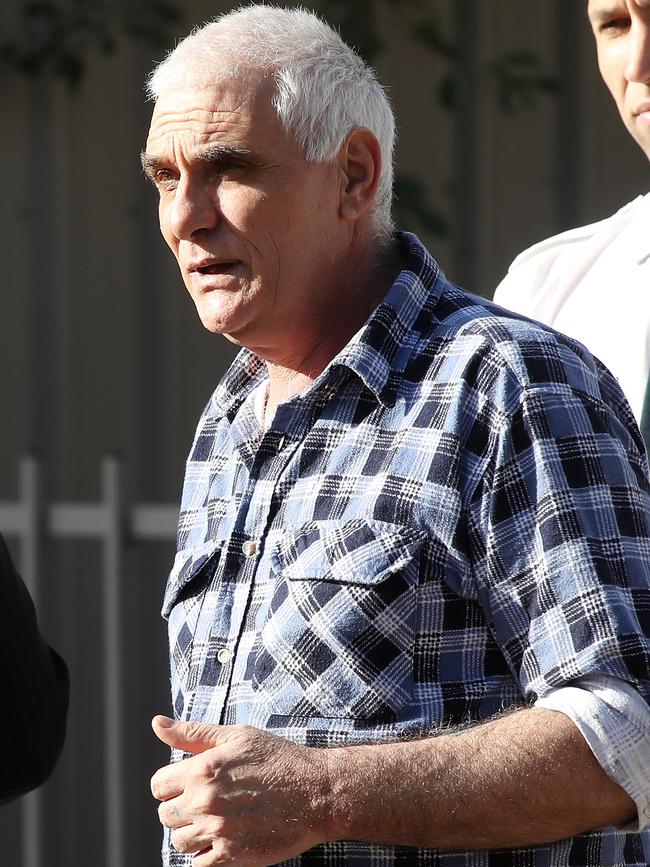Coroner slams availability of hanging points in prisons after death of murder accused Anthony Lanzafame
A coroner has criticised prison cell safety after accused murderer Anthony Lanzafame took his own life while standing trial for murder.

SA News
Don't miss out on the headlines from SA News. Followed categories will be added to My News.
A coroner has criticised the continuing availability of potential suicide points in the state’s prisons, including a “readily identifiable” hanging point in the cell of an alleged murderer who took his own life mid-trial.
Anthony Lanzafame was standing trial in 2016 for the stabbing murder of his partner’s 26-year-old son, Andrew Tilbrook, outside their Greenacres home in December 2014. Mr Lanzafame was in custody at the Adelaide Remand Centre when he died, just days into his murder trial.
Prosecutors had alleged Mr Lanzafame stabbed Mr Tilbrook once in the heart during an alcohol-fuelled argument between the pair.
In his findings, handed down on Wednesday, Deputy State Coroner Anthony Schapel said coroners’ courts around Australia had been urging authorities to eliminate hanging points for years.

“The hanging point in Mr Lanzafame’s cell was one that could be readily identified by a prisoner intent on self-harm,” he said.
“The court in this case repeats the many recommendations made in previous cases and that is that, regardless of the type of accommodation within the prison system and regardless of the risk assessment pertaining to a particular prisoner, hanging points should be eliminated from cells, especially those that provide single occupancy.”
Mr Schapel said Mr Lanzafame’s suicide could not have been prevented, unless he was housed in a double cell with another prisoner, or a hanging point did not exist.
But, he said Mr Lanzafame had been in a single cell for more than a year without incident and that it was not unreasonable for him to remain in a single cell during his trial.
Mr Schapel said an audio recording of Mr Lanzafame threatening to kill his stepson was played to the jury the day before he died.
He said before his death, Mr Lanzafame had intimated entering a plea to manslaughter and it was likely he had “resigned himself to spending a significant time in prison and therefore in a smoke-free environment”.
Mr Schapel noted Mr Lanzafame had a smoking addiction, smoking as many as 60 cigarettes a day for more than 40 years, and had expressed resentment and stress at being forced to give them up as the ARC became the state’s first smoke-free correctional institution.
The Department of Correctional Services said on Wednesday they have a policy for safe cells in high risk areas.
“All cells at the Adelaide Remand Centre were upgraded to a safe cell standard in 2019 by current facility operator Serco,” a spokesperson said.
“DCS manages prisoners in varying accommodation settings across the state, ranging from high security to low security. In South Australia 80 per cent of prisoners share their accommodation with at least one other.”



